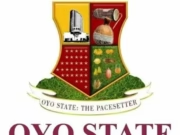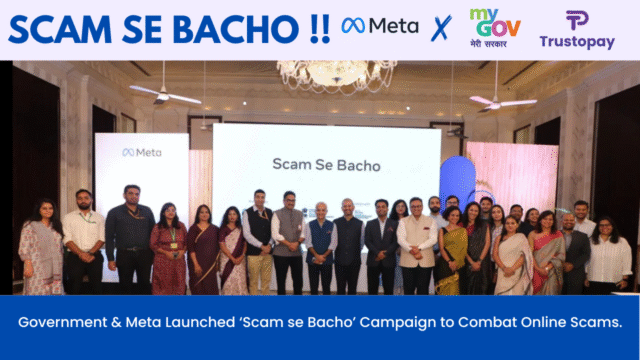Meta has unveiled the second edition of its Scam Se Bacho initiative—Scam Se Bacho 2.0—a bold attempt to bring real-world cybersecurity education into public Indian spaces like metro stations, shopping malls, bus stops, and bustling marketplaces. The campaign’s innovative public‑outreach strategy aims to cultivate digital vigilance and strengthen user defences against scams.
Table of Contents
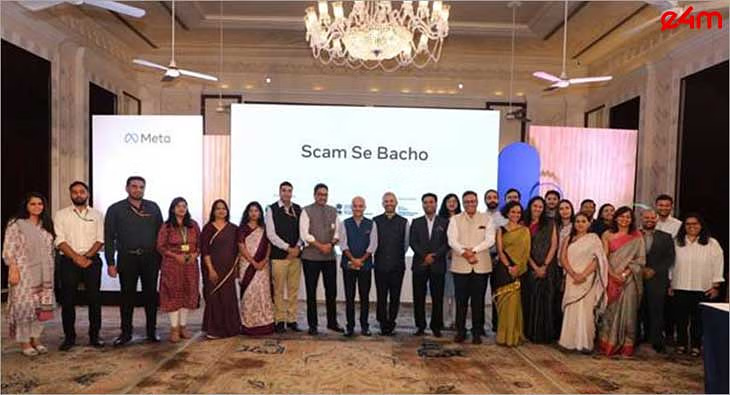
A Public‑Space Classroom
Rather than limiting its messages to the digital sphere, Meta is now turning foot‑traffic hotspots into impromptu classrooms. Large-scale visual campaigns—posters, digital screens, interactive displays—are strategically deployed in crowded areas. The goal: make lessons on phishing, password safety, two-factor authentication, and scam awareness impossible to ignore for everyday commuters and shoppers.
This real‑world approach builds on the success of the original “Scam Se Bacho” program, which focused on media and online content. By stepping into physical locations, Meta seeks to reach users who may not be actively reading digital safety messages—especially digitally less-savvy or marginalized communities.
Strengthening India’s Cyber-Literacy Base
Scam Se Bacho 2.0 arrives amid India’s escalating online penetration: over 900 million internet users, surging UPI payments, and millions of daily digital interactions. Previous central government initiatives, along with Meta’s first campaign, have already highlighted the seriousness of scam-related threats in India—estimated to exceed one million reported cyber fraud cases in 2023 alone.
With phase two of the campaign, Meta is doubling down by collaborating with local authorities and creating multi‑language awareness materials and public awareness sessions tailored to diverse Indian audiences.
Engaging—and Empowering—Everyday Citizens
The public-space format is deliberately designed to be engaging and accessible. Rather than bland advisories, displays feature attention-grabbing infographics, relatable scenarios, and simple safety tips. Meta hopes that by embedding these teachings in day-to-day journeys—riding the metro, waiting for a bus, browsing a mall—they’ll soak in quietly, prompting people to pause and consider their online behaviour.
Importantly, the campaign emphasises actual tools available on Meta platforms—such as reporting features on Facebook and Instagram or group privacy settings on WhatsApp—that help users counter scams proactively.
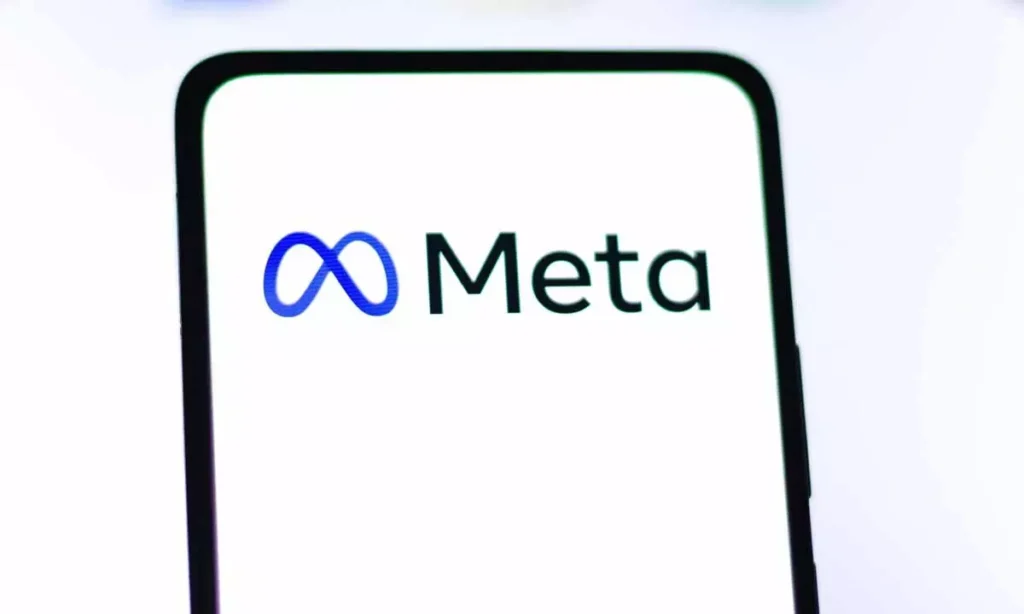
A Broader Ecosystem of Safety Education
Meta’s initiative is no standalone effort. It builds on earlier coordination with India’s Ministry of Electronics and Information Technology (MeitY), the Information and Broadcasting Ministry (MIB), the Home Affairs Ministry, and the Indian Cyber Crime Coordination Centre (I4C). These collaborations launched the original Scam Se Bacho campaign focused on nationwide awareness through media, workshops, and training law enforcement personnel.
As part of Scam Se Bacho 2.0, Meta is introducing regional language adaptations and expanding reach in tier‑2 and tier‑3 cities—where in-person public messaging could fill digital gaps in cyber literacy.
Why It Matters: Shaping Digital Confidence
By using ambient public spaces, Meta is targeting a key challenge: reaching users who may either distrust digital platforms or are unaware of looming risks. The campaign encourages real-world vigilance, helps build safer online habits, and strengthens trust in digital tools.
In doing so, Meta reinforces its stated commitment to promoting user safety and privacy, while leaning into a broader educational mission: digital literacy as empowerment.
Early Signals & Future Plans
While the campaign has just begun, early reports suggest strong engagement in cities where messaging is prominently displayed in metros and malls. Meta intends to refine content based on feedback, add more vernacular translations, and integrate interactive quizzes or short videos into displays as it progresses.
Additionally, Meta signals that safety lessons are being incorporated into its apps: from blocking/report tools to automated scam detection systems.
Editorial Perspective: A Smart Move
Meta’s transition from online messaging to “street‑level” education feels strategic and thoughtful. Leveraging physical touchpoints acknowledges a digital literacy divide—and suggests that awareness is more than a screen‑scroll away.
By weaving public messaging, local language content, interactive visuals, and a partnership with government agencies, Scam Se Bacho 2.0 is well-positioned to shift public habits. It reframes digital safety not as a niche issue for experts, but as a civic practice everyone should adopt.
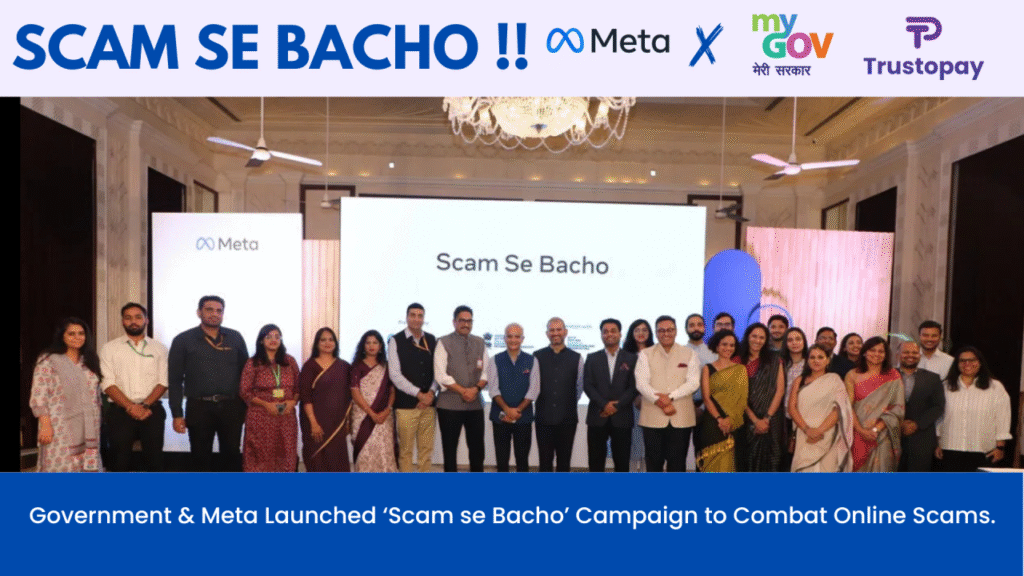
Takeaway
Meta Scam Se Bacho 2.0 merges real-world presence with digital awareness, entering the public arena with crucial messages about cybersecurity. It stands out not merely as a campaign, but as a movement toward inclusive digital education—targeting every commuter, shopper, and passer‑by in cities across India.
Join Our Social Media Channels:
WhatsApp: NaijaEyes
Facebook: NaijaEyes
Twitter: NaijaEyes
Instagram: NaijaEyes
TikTok: NaijaEyes


